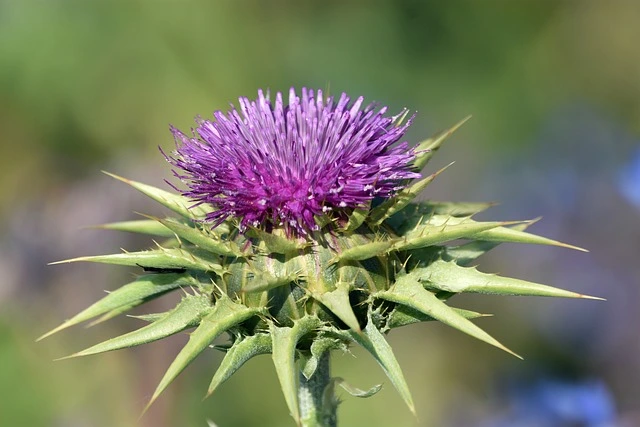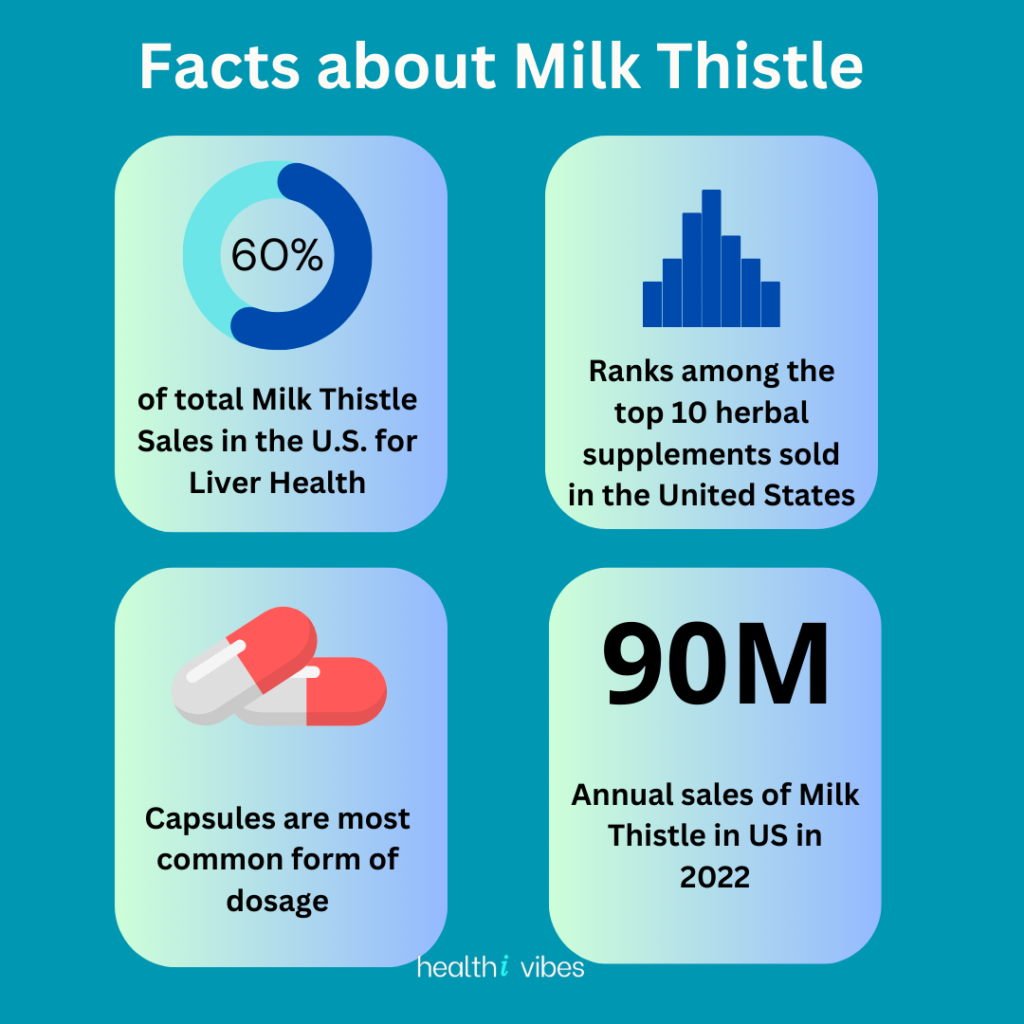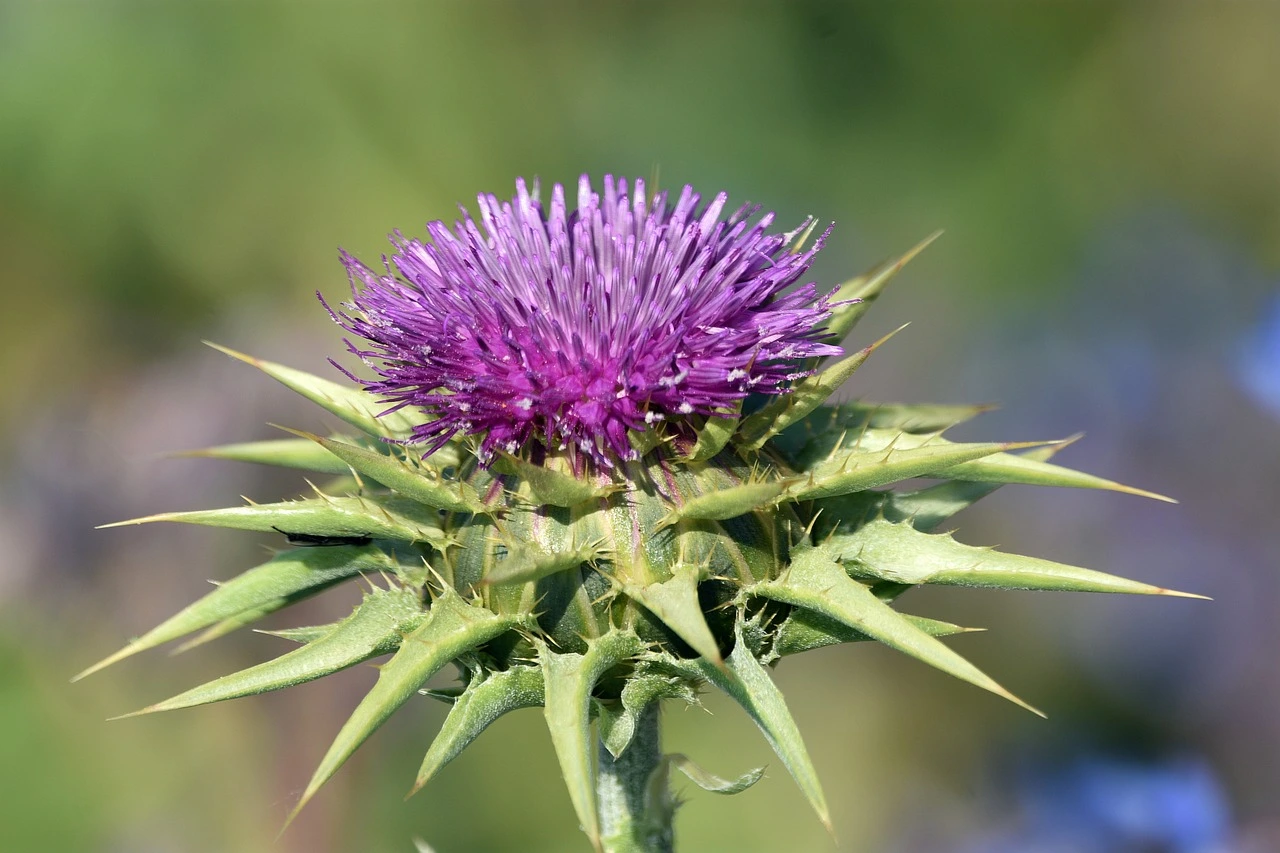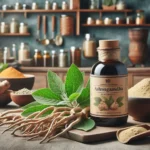Milk thistle (Silybum marianum) is a flowering herb native to the Mediterranean region, renowned for its numerous health benefits, particularly its powerful detoxifying effects on the liver. This plant has been used for thousands of years in traditional medicine to support liver health, improve digestion, and promote overall wellness. In this article, we will explore the benefits, uses, and some commercially available options of milk thistle supplements.
Introduction to Milk Thistle
Milk thistle has a rich history in herbal medicine, with records of its use dating back to ancient Greece and Rome. The primary active ingredient in milk thistle is silymarin, a potent antioxidant and anti-inflammatory compound. Silymarin is found in the seeds of the plant and is believed to have numerous therapeutic properties, including liver protection, detoxification, and the promotion of cellular regeneration.

In modern times, it is widely used as a natural remedy for liver-related ailments such as hepatitis, cirrhosis, and fatty liver disease. Its benefits extend beyond liver health, however, as it also supports digestive health, skin wellness, and more.
Key Benefits of Milk Thistle
1. Liver Detoxification and Protection
The liver is the body’s main detox organ, responsible for filtering out toxins from the blood and metabolizing fats, proteins, and carbohydrates. Milk thistle’s silymarin has been shown to protect liver cells from damage caused by toxins like alcohol, medications, and environmental pollutants. Silymarin helps to neutralize free radicals and support the regeneration of liver tissue, making it particularly effective for those suffering from liver diseases or recovering from liver damage.
2. Antioxidant Properties
It is is rich in antioxidants, particularly silymarin, which helps protect cells from oxidative stress. Antioxidants combat the damage caused by free radicals, which are unstable molecules that can accelerate aging and contribute to the development of chronic diseases. By reducing oxidative stress, milk thistle helps to support overall health and may reduce the risk of conditions such as heart disease and cancer.
3. Supports Healthy Skin
Thanks to its antioxidant and anti-inflammatory properties, milk thistle is beneficial for skin health. It has been used to treat skin conditions such as acne, psoriasis, and eczema. The herb may also support skin repair and reduce the visible signs of aging by protecting the skin from environmental damage and promoting the production of collagen.
4. Aids Digestion
It promotes healthy digestion by stimulating bile production, which helps to break down fats and improve nutrient absorption. This can be particularly helpful for individuals with digestive issues, such as bloating, constipation, or indigestion.Its liver-protective effects also contribute to improved digestion, as a healthy liver is essential for proper digestion and metabolism.
5. May Help Manage Diabetes
Emerging research suggests that milk thistle may play a role in managing diabetes by improving insulin sensitivity and reducing blood sugar levels. Studies have shown that silymarin can improve glycemic control and lower HbA1c levels in individuals with type 2 diabetes. While more research is needed, milk thistle holds promise as a complementary treatment for managing blood sugar levels.
6. Improves Brain Function
Silymarin has neuroprotective properties, which may help protect the brain from age-related cognitive decline. Some studies have shown that it can reduce inflammation and oxidative stress in the brain, potentially offering protection against conditions such as Alzheimer’s disease and Parkinson’s disease.

Commercially Available Milk Thistle Dosage Forms
Milk thistle is available in a variety of forms to suit different preferences and needs. Each form offers its own advantages in terms of convenience, absorption, and potency. Here’s an overview of the different commercially available forms:
1. Capsules and Tablets
- Most common form of milk thistle supplements.
- Convenient and easy to take daily.
- Typically standardized to contain a specific percentage of silymarin (the active compound), usually between 70% to 80%.
- Popular brands: Nature’s Bounty, Jarrow Formulas, Himalyan Organics
2. Liquid Extract
- Provides a concentrated form of milk thistle.
- Can be mixed with water, juice, or other beverages.
- Absorbed more quickly by the body than capsules or tablets.
- Often used by individuals who have difficulty swallowing pills.
- Popular brands: Nature Verse, Herb Pharm.
3. Powder
- Available as pure ground seeds or powdered extract.
- Can be mixed into smoothies, shakes, or food.
- Flexible in terms of usage but less convenient than capsules.
- Offers the full spectrum of nutrients present in milk thistle seeds.
- Some people find it more palatable when mixed with honey or added to snacks.
4. Milk Thistle Tea
- Made from dried milk thistle seeds or leaves.
- A gentle and soothing way to enjoy milk thistle’s benefits, particularly for digestive support.
- Less potent than capsules or extracts because boiling the seeds can degrade some of the silymarin content.
- Can be combined with other herbs such as dandelion for added detox benefits.
5. Softgels
- Similar to capsules, but encapsulated in a gel-like form.
- Easier to swallow and may be absorbed faster due to the softgel form.
- Often contain additional ingredients, like vitamin E or omega-3 oils, for added health benefits.
6. Tincture
- Similar to liquid extracts, but typically alcohol-based.
- Higher concentration of active ingredients.
- Requires dilution in water or juice for consumption.
- Dosage is typically measured in drops.
7. Topical Creams and Lotions
- Used for skin health, particularly for conditions like acne, psoriasis, or eczema.
- Its antioxidant and anti-inflammatory properties help soothe and repair skin.
- Often combined with other skin-friendly ingredients like aloe vera or vitamin E.
- These formulations are typically found in natural skincare lines.
Choosing the Right Form
The best form of milk thistle for you depends on your preferences and health goals:
- For liver support and detoxification: Capsules, softgels, or liquid extracts are the most effective.
- For digestive health: Tea or powder can be more gentle and soothing.
- For skin health: Topical creams offer targeted relief for skin conditions.
How to Use Milk Thistle
Milk thistle is available in various forms, including capsules, tablets, liquid extracts, and teas. The dosage and form will depend on your individual needs and health goals. Here are some general guidelines:
- Capsules or tablets: Milk thistle capsules are one of the most popular and convenient forms of the supplement. The typical dosage ranges from 150 to 300 mg of silymarin, taken 1 to 3 times per day.
- Liquid extract: Its extract can be added to water or juice and is usually taken in doses of 1 to 2 ml, 2 to 3 times per day.
- Teas: Milk thistle tea is a mild and soothing way to incorporate the herb into your daily routine. While not as potent as extracts or capsules, tea can still offer liver-supportive benefits.
Before starting any supplement regimen, it’s a good idea to consult with a healthcare professional, especially if you have underlying health conditions or are taking medications.
Contraindications of Milk Thistle
Milk thistle is generally considered safe for most people when taken in appropriate doses, but there are some contraindications and precautions to be aware of:
Allergies
- Ragweed allergy: People allergic to plants in the Asteraceae/Compositae family (e.g., ragweed, marigolds, daisies) may experience allergic reactions to milk thistle.
- Other allergies: If you have a history of severe allergies, it’s advisable to consult with a healthcare professional before using milk thistle.
Medical Conditions
- Liver conditions: While milk thistle is often used to support liver health, individuals with certain liver conditions might need to approach its use with caution. It’s essential to consult a doctor if you have pre-existing liver issues.
- Hormone-sensitive conditions: It might interact with estrogen, so individuals with conditions like breast cancer, endometriosis, or uterine fibroids should consult a healthcare provider before use.
- Diabetes: It can potentially lower blood sugar levels. People with diabetes or hypoglycemia should monitor their blood sugar closely and consult with a healthcare professional if taking milk thistle.
- Pregnancy and breastfeeding: The safety of milk thistle during pregnancy and breastfeeding is not fully established. Pregnant and breastfeeding women should consult with a healthcare provider before use.
Drug Interactions
Milk thistle can affect how the liver processes certain medications (e.g., statins, anticoagulants, certain chemotherapy drugs), leading to possible interactions. Few of them are:
- Cytochrome P450 2C9 (CYP2C9) substrates: It may affect the metabolism of drugs like diazepam (Valium) and warfarin (Jantoven).
- Diabetes medications: It may enhance the blood sugar-lowering effects.
- Raloxifene (Evista): It may increase the levels of this osteoporosis medication in the bloodstream.
- Simeprevir: It may increase the levels of this hepatitis C medication.
- Sirolimus (Rapamune): It may alter the metabolism of this immunosuppressant.
It’s crucial to consult with a healthcare provider before starting any new supplement, especially if you have underlying health conditions or are taking medications. They can provide personalized advice based on your specific circumstances.
Side Effects of Milk Thistle
Common side effects of milk thistle are generally mild but may include:
- Gastrointestinal issues: Nausea, bloating, gas, indigestion, diarrhea.
- Allergic reactions: People with allergies to plants in the Asteraceae/Compositae family may experience itching, rashes, or hives.
- Headaches: Some users report mild to moderate headaches.
- Joint pain: Rare but possible side effect.
- Hypoglycemia: It may lower blood sugar levels, potentially leading to low blood sugar in some people, particularly those with diabetes.
- Skin reactions: Mild skin rash or itching in sensitive individuals.
- Dizziness: Rare cases of dizziness have been reported, especially when taken in higher doses.
Most side effects are uncommon and mild, but it’s always recommended to start with lower doses and consult a healthcare provider before taking it.
Conclusion
Milk thistle is a powerful herb with a long history of use for liver support and overall wellness. Its ability to protect and regenerate liver cells, coupled with its antioxidant and anti-inflammatory properties, makes it a valuable addition to any natural health regimen. Whether you’re looking to support liver health, improve digestion, or protect your skin, milk thistle offers a range of benefits that can enhance your well-being.
If you’re considering adding it to your health routine, there are many high-quality supplements available on the market. Be sure to choose a reputable brand and consult with your healthcare provider to determine the right dosage for your needs.
Disclaimer
The information provided in this article is for educational purposes only and should not be considered medical advice. While milk thistle is widely used as a natural supplement for liver health and other wellness benefits, its effectiveness and safety can vary depending on individual health conditions.
Always consult with a qualified healthcare provider before starting any new supplement, especially if you have underlying medical conditions, are taking medications, or are pregnant or nursing. The statements in this article on Milk thistle are not intended to diagnose, treat, cure, or prevent any disease.
The above article contains affiliate links. We may earn a commission if you wish to buy a product after clicking on the links*









